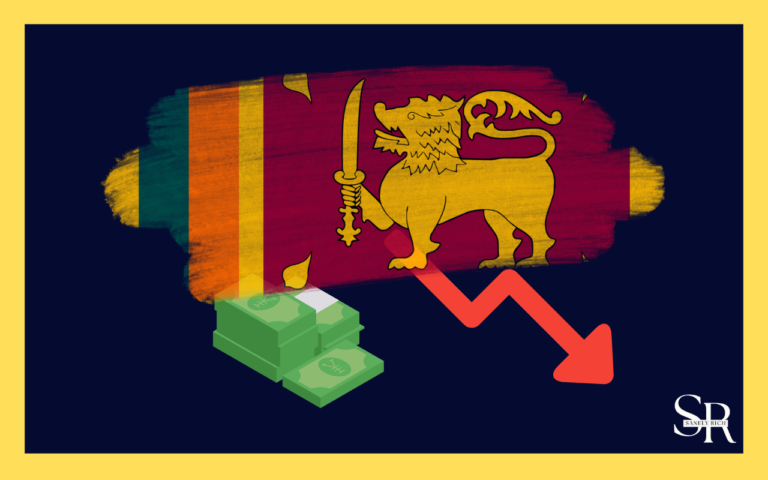Sri Lanka, a land known for its beautiful beaches, luxurious resort stays, lush tea plantations, historical caves, rich culture & diversity, delicious food, and a lot more is currently facing its worst economic crisis. The nation is facing lengthy power cuts, fuel shortages, increased gas prices, and the unavailability of food and clean water. The president of the country has declared a state of emergency due to violent protesters demanding his resignation. The basic problem the country is dealing with is insufficient money to import the basic necessities required for survival from other countries. As we take a deep dive into the Sri Lanka’s economic crisis.
Worst Economic Crisis In 70 Years :
The situation in Sri Lanka is getting worse by the day. Basic necessities even the locally-produced ones are unbearable.
As we compare the cost of basic necessities now as compared to 2019.
More on: https://t.co/cBVzDEHqcw#srilanka #srilankacrisis #SriLankaEconomicCrisis pic.twitter.com/4QTppl5eZH
— Sanely rich (@SanelyRich) April 8, 2022
The Reason Of The Crisis :
Low Export Revenues
Sri Lanka has been the leading exporter of Tea, Rubber and Garments ever since the colonial era. The economy was stuck with the same products as leaders. However, these exporters suffered with the rapid decline in prices of these commodities over the past decade.
With pandemic hitting in 2020, the demand for these products fell further
Reduced Tourism
Sri Lanka depended on Tourism and the earnings from the industry were stable. However, the sector was doomed with the 2019 Easter Bomb Blasts in 3 churches and 3 hotels, killing about 253 people. This led to an 18% fall in tourism.
To top this, 2020 brought the Covid which led to a decline in the remaining tourist activities as well
Tax Reforms
VAT rates were cut from 15% to just 8%, reducing the revenues even further in December 2019. Taxes such as “Nation Building Tax” (2%), PAYE Tax and Economic Service Charge were completely withdrawn.
This made Sri Lanka one of the countries with the lowest tax rates resulting in a major drop in indirect tax revenues. They fell by close to 50% from 443,877 million LKR in 2019 to 233,786 million LKR in 2020
Increased Government Expenditure
The government had to increase its spendings in the lockdown periods of the 2020 pandemic. Increased expenses of quarantine centers, hospitals, increased staff and the likes were major reasons. Low revenues and high expenditure increased the already existing fiscal deficit
Organic Farming
The president, Rajapakse, on certain advice, believed that stopping fertilizer imports would reduce forex pressures and implemented it. Western organic groups appreciated the idea. However, many saw what was coming way in advance.
Unlike most countries that had minimal to no negative impact on the agriculture sector during the pandemic, the produce in Sri Lanka fell drastically. In the words of the IMF, the impact was “worse than expected”.
With reduced food production and export-import industry hurt, there was a shortage of food within the country. The policy ended up increasing the forex pressures.
The Outrage By Sri Lankans :
Sri Lanka | Protest outside US Embassy in Colombo demanding to freeze PM Rajapaksa's property in USA
His illegally occupied assets should be frozen & liquidated, money should be sent back to help Sri Lanka in crisis. He shouldn't escape the country: Rajiv, a photographer (08.04) pic.twitter.com/xn9jdPdAUB
— ANI (@ANI) April 8, 2022
Help From India :
Flash: India sends 40,000 MT of diesel, 36,000 MT of Petrol to Sri Lanka under $500 m fuel Line of credit; This is the 5th consignment of fuel since March to Sri Lanka by Indian Govt pic.twitter.com/7uyF8WolLm
— Sidhant Sibal (@sidhant) April 6, 2022
Various nations are coming forward to help Sri Lanka and we hope that they selflessly continue the act in these tough times. Sadly, many are predicting that Sri Lanka will ultimately have to take another loan with strict conditions from the IMF and bear another deflationary spiral.
It would be interesting to see how Sri Lanka comes out of this crisis and we hope the citizens are soon able to receive at least the basic necessities.







[…] 15th August 1947, the Independence day of the beautiful country – India, Remarkably was also the day when 1 Rupee was exactly equal to 1 USD. Fast forward to 13th May 2022, the Indian currency hits an all-time low of INR 77.704 for 1 USD. But what’s the reason behind this plummeting of Indian currency despite outperforming its Asian peers? […]